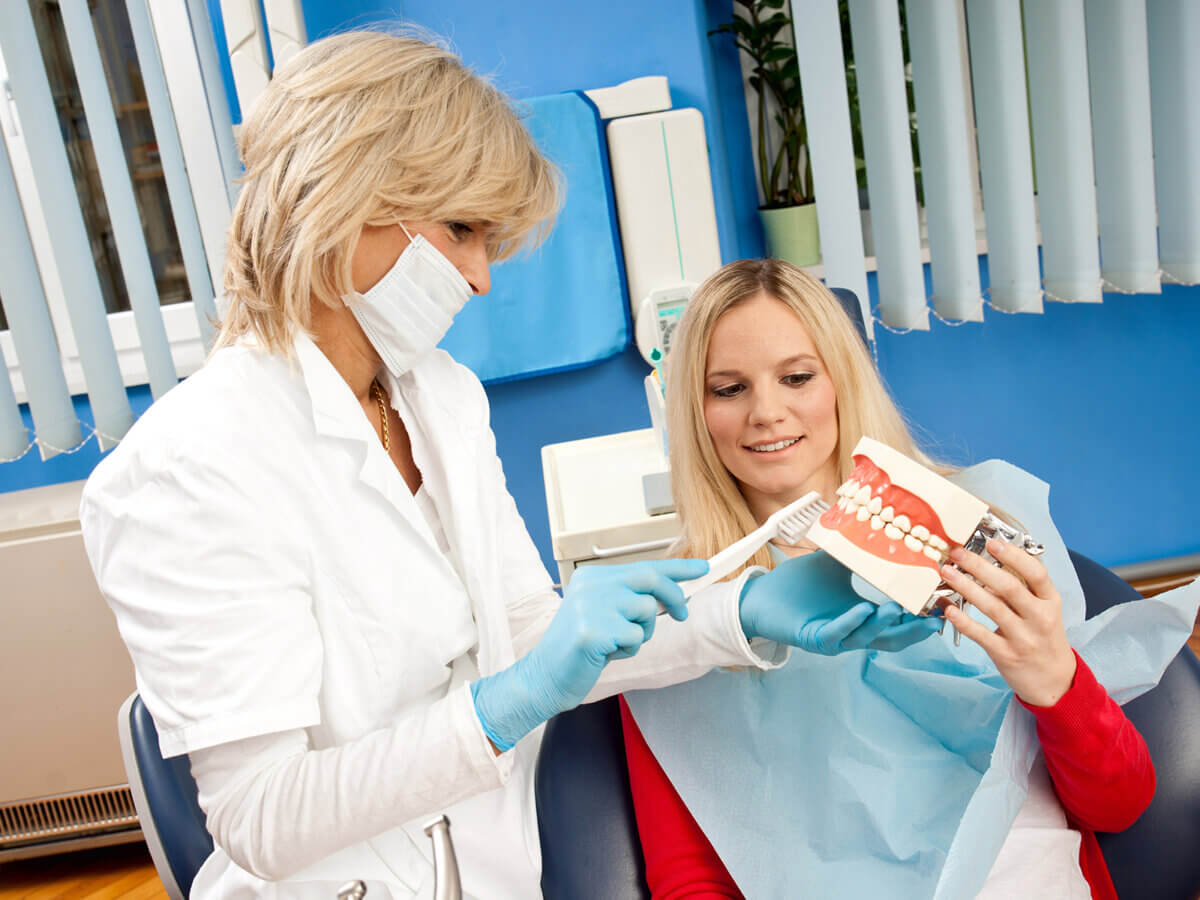Blog
Dental hygiene tips for healthy teeth & gums

Tips For Maintaining Strong And Healthy Teeth
Healthy teeth and gums are essential for more than just a bright smile; it’s good for the whole body. Having strong, healthy teeth is essential for eating, speaking, and chewing. However, good dental health is neither achieved nor maintained without persistent work and a long-term healthy lifestyle commitment. In this detailed manual, we’ll examine a wide range of strategies for preserving your teeth’s health and vitality.
Scheduling Biannual Dental Exams:
- Regular dental checkups are the bedrock of healthy teeth and gums. Dentists are trained to see the warning indications of oral health problems, perform expert cleanings, and offer advice on how to maintain good oral hygiene by teaching good hygiene habits.
- The standard recommendation is every six months for a checkup and cleaning at the dentist. However, the frequency may change based on the specifics of each case.
Top Dental Health Tips:
- Brushing: You should use fluoride toothpaste and brush your teeth at least twice a day, once in the morning and once before bed. Use a soft-bristled toothbrush and brush thoroughly for at least two minutes, as dentists recommend. Brush your teeth thoroughly, including the tongue and roof of your mouth, using a soft, circular, or back-and-forth motion. Brush heads of toothbrushes should be replaced every three to four months or when bristles get ragged.
- Flossing: Flossing your teeth once a day will help you maintain a healthy mouth by removing food and plaque from between your teeth and along your gum line.
- Proper Method: Insert the floss between teeth with a gentle sawing motion and bend it into a “C” shape around each tooth. Avoid snapping the floss, as this might cause injury to the gums.
- Gargle: Use an antibacterial or fluoride mouthwash as part of your regular oral hygiene practice to combat microorganisms and protect tooth enamel. If you’re not sure which mouthwash will work best for you, it’s a good idea to talk to your dentist.
- Nutrition and Diet: Reduce your intake of sugary foods and drinks, as they contribute to tooth damage. Fruits, vegetables, lean meats, and dairy products should all be part of your balanced diet. These aid in the development of healthy teeth and gums. Water is a great option for preserving oral health and hydration. It’s a good technique to get rid of germs and leftover food.
- Break your bad habits: To prevent gum disease and tooth loss, you should try these dental habits:
- Stop smoking: If you want to enhance your oral health, quitting smoking is a good first step.
- Limit your alcohol intake: doing so can reduce the likelihood of developing dry mouth, gum disease, and even oral cancer.
- Decrease Nighttime Teeth Grinding: Dentists recommend nightguards for people who grind their teeth in their sleep (bruxism).
- Water Intake and Salivary Secretion: The best oral care habit is to keep your saliva production optimal by drinking enough water throughout the day. Teeth can be protected from acid damage by saliva. Sugar-free gum chewing can increase saliva flow and prolong dry mouth by a few hours.
- Precautionary Steps:
- Use a Mouthguard: If you engage in contact sports or clench or grind your teeth, you should use a mouthguard to prevent injury to your teeth and improve tooth strength.
- Dental Sealants: Dental sealants are a thin, protective coating that adheres to the chewing surface of your back teeth. They can prevent cavities from forming and stop early-stage cavities from progressing.
Final Thought:
Your oral health is a reflection of your overall health. By maintaining a healthy lifestyle and following a regular oral hygiene routine, you can ensure that your teeth and gums remain strong and healthy for a lifetime. Regular dental check-ups, brushing, flossing, and avoiding harmful habits are all essential components of good oral health. Remember, a healthy mouth is a sign of a healthy body.


